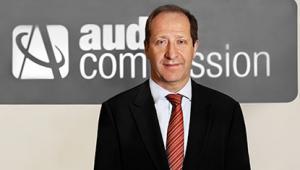By Richard Johnstone | 27 February 2014
Management costs in local authorities, including some finance functions, have increased by 10% in the last decade, with poor monitoring now hindering attempts to cut spending, the Audit Commission has said.

Credit: iStock
The watchdog examined the cost of central management functions, such as finance, human resources, information technology and property and called for greater scrutiny following the rise in spending.
Total spending on management support services in councils grew by 23% in real terms between 2003/04 and 2007/08. From 2009/10 to 2011/12, spending was cut by 11%, according to available figures, but spending in real terms was still £577m higher in March 2012 than in 2003/04.
By contrast, spending on statutory corporate functions such as financial reporting, as well as democratic management costs like councillors’ allowances and expenses, fell over the decade. Although there was a real-terms increase of 4% between 2003/04 and 2009/10, there was then a 16% fall to 2012/13, meaning a total cut of £227m – or 13% in real terms – over the period.
Commission chair Jeremy Newman said the watchdog’s analysis of management services was undermined as only 223 councils had a complete record of spending on central functions. Around one-third of authorities in England – 119 – recorded no spending in one or more years from 2003/04 to 2012/13.
As spending on management services was higher than local government’s total budgets for children’s social care, it was vital councils scrutinised their spending in this area, he said.
‘The councils with missing data or unusually high year-on-year variation will find it difficult to get a clear picture of their spending in order to identify possible savings.
‘These councils need to focus on consistent and reliable recording of their spending to improve financial management and strengthen accountability to local taxpayers.’
Newman also stated that savings in democratic management costs could be greater if the performance of all town halls matched the most efficient.
‘As a result of efforts made by English councils, we’ve seen a saving of £227m in real terms in their corporate and democratic management costs from 2003/04 to 2012/13.
‘However, some still spend much less than others and the majority of this variation can’t be explained by external factors. If the higher-spending councils in 2012/13 had kept their costs in line with their peers, they’d have saved £290m.’
Responding, the Local Government Association said the report showed councils had been cutting costs since 2009.
However, LGA improvement board chair Peter Fleming criticised what he called the ‘simplistic’ analysis.
‘Local government is the most efficient part of the public sector. Like many other types of organisation, councils have finance, human resources and IT functions which enable them to get on with the job of providing vital services like caring for the elderly, protecting vulnerable children and collecting the bins.
‘Councils have taken innovative approaches to keeping these costs down and different approaches have led to local variations in the way these costs are categorised and reported. This simplistic attempt to compare one authority with another has resulted in a misleading picture from which little can be learned.’





















